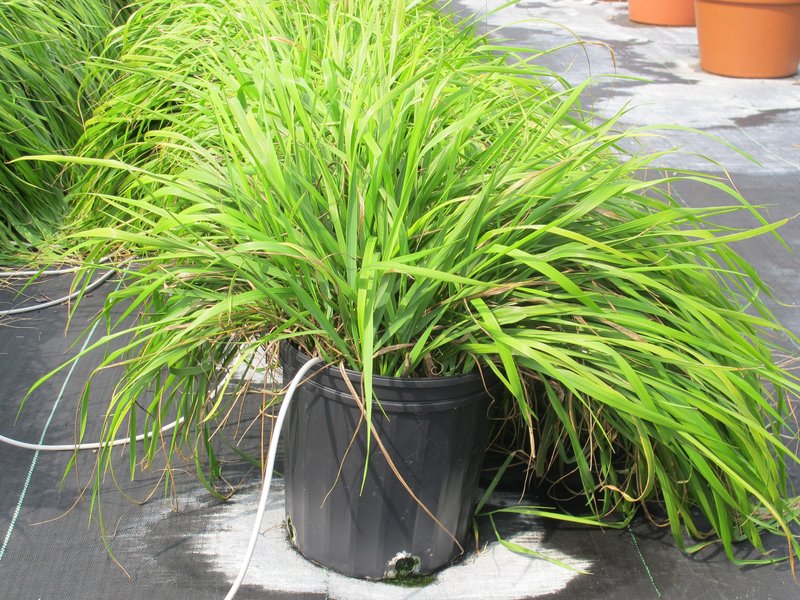If you hate the pungent odor of most mosquito repellents, there might be a very sweet-smelling alternative. Researchers have identified two mosquito-repelling chemicals naturally found in sweetgrass, an aromatic herb that some Native American peoples have traditionally used to ward off the pesky insects.
In one test, distilled sweetgrass oil even matched the repellent potency of DEET, the current gold standard for anti-mosquito effectiveness.
Stopping mosquito bites is about more than enjoying a barbecue in peace. It's a serious human health issue—as vectors for diseases such as malaria and yellow fever, mosquitoes kill more humans than murderers do. There are some unusual ideas for how to ward off the pests, including silencing the bacteria on your skin, but most people are still in search of a safe and effective topical repellent they can use when needed. Sweetgrass (Hierochloe odorata) is the latest in a line of traditional, natural repellents to be examined by chemist Charles Cantrell and his colleagues at the USDA's Natural Products Utilization Research Unit at the University of Mississippi.
“We're always looking for new leads for discovering new biopesticides,” says Cantrell. “Traditional or folk remedies have been a good source of leads for natural things that may be effective in repelling insects. We've looked at beautyberry, we've looked at breadfruit from the Hawaiian Islands, which is one that you burn, and we've looked at Jatropha from India, which is another one you burn. They've all kind of led us in different directions chemically, and sweetgrass has another different chemistry.”
Despite concerns about its toxicity to humans and potential environmental damage, DEET remains the gold standard for repelling mosquitoes, ticks, fleas and other pests. The main reason, Cantrell says, is that it not only works, but it also lasts for a long time.
“You see that the market is being flooded with natural products, essential oil-based insect repellents,” he says. “There are some that work, but there are a lot of them that may only work for 20 or 30 minutes. What we're ideally looking for is something natural and nontoxic that's just as effective as DEET, that will work as an effective repellent for 10 or 12 hours like DEET.” So far, finding a natural product with the same staying power has been challenging, which is why Cantrell's lab has been exploring so many different plants.
Sweetgrass had many ceremonial uses among Native Americans. Some people wore braids of it around their necks or adorned their homes with the aromatic plant to help repel mosquitoes. Because of these uses, Cantrell theorized that the plant's sweet smell must include bug-repellent chemicals that waft off the plant in nature.
His team extracted sweetgrass's essential oils via steam distillation and then put it to the test. They presented mosquitoes with vials containing a feeding agent much like human blood. Each vial was covered with a thin membrane that was then treated with a variety of repellents, including the sweetgrass oil and, for comparison, DEET.
The scientists watched the mosquitoes' biting behavior and even satisfyingly smashed the insects on paper to see which false bloods they had ingested. Sweetgrass oil performed very well—matching the repellency of DEET, the team reported this week at the 250th American Chemical Society National Meeting & Exposition in Boston.
The team then broke down sweetgrass oil into its chemical components using nuclear magnetic resonance spectroscopy and mass spectrometry to reveal two chemicals that appeared to be responsible for the plant's repellent powers—coumarin and phytol.
Scientific literature on essential oils had previously suggested that phytol can play a repellent role. And coumarin has actually been commonly used as an insect repellent for many years—though it's never been marketed as one.
“You may remember that for a long time there was a buzz surrounding Avon's Skin-So-Soft, which many people are convinced had repellent properties,” Cantrell says. “Avon never made any such claims because Skin-So-Soft wasn't registered as a repellent, it was formulated for skin care. But the general consensus of people who looked at the product was that coumarin was acting as a repellent." Avon now makes skin produces that are branded as repellents, but those don't contain coumarin, because the chemical is not registered as a repellent with the EPA.
It's still unclear whether coumarin will prove to have the same long-lasting effectiveness as DEET, so Cantrell plans to subject sweetgrass oils to further study. He's quick to note, too, that showing there is sound science behind the herb's bug-busting properties doesn't mean that all traditional repellents will have merit. “When you look at these traditional remedies, those people certainly didn't bat 1,000,” Cantrell notes. “But we have had good luck with some of them, and they've really been fun projects.”
